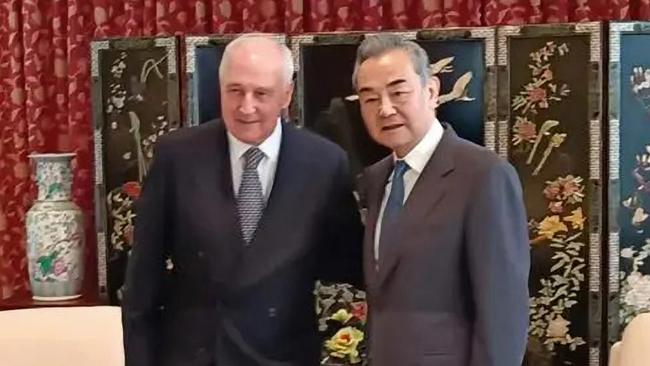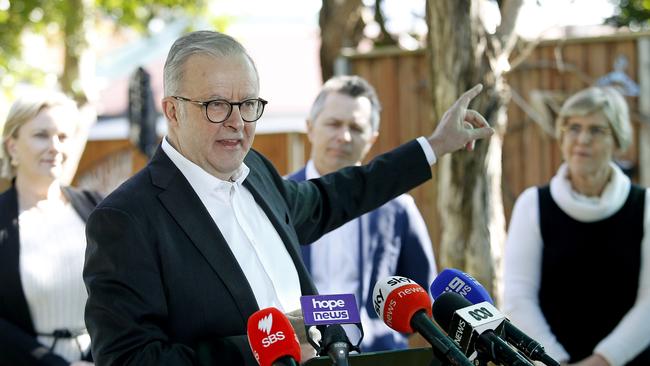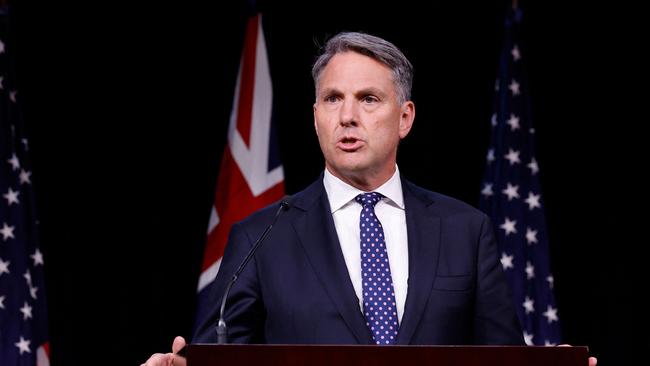Australia to become ‘US protectorate’ in Asia, Keating warns
In his second attack on the government’s national security policies in as many days, the 80-year-old former prime minister said Australia should be ‘celebrating the rise of China’.

Paul Keating says Anthony Albanese has put Australia on a path to becoming a “US protectorate” in Asia when the nation should be “celebrating the rise of China”.
In his second attack on the government’s national security policies in as many days, the 80-year-old former prime minister said Mr Albanese’s embrace of AUKUS and green light for a growing US military presence in Australia would reduce the nation to the status of “an Atlantic supplicant”.
“The fact is, the Albanese government is returning to the anglosphere to garner Australia’s security,” Mr Keating said in a statement on Friday.
“In effect, the Albanese government is doing the very thing that all my life I had trenchantly opposed, and in the post-war years Labor had opposed. And that is, finding our security from Asia rather than our security in Asia.”
His comments followed his attack the day before in an ABC interview, accusing the government of selling out its defence to the US by adopting the Morrison government’s AUKUS submarine plan.

Mr Albanese said earlier on Friday that Mr Keating was a “great prime minister” but the world had moved on in the nearly three decades since he left office.
“My job as Prime Minister is to do what Australia needs in 2024,” he said. “The world has changed between 1996 and 2024 and my government is doing what we need to do today.”
Mr Keating hit back, saying the government’s move to expand America’s military presence in Australia with “base building” and “ever-rising US troop movements” would leave the nation as a “continental extension of American power”.
“Such an outcome is likely to turn the Australian government, in defence and security terms, into simply the national administrator of what would be broadly viewed in Asia as a US protectorate,” he said, while blasting the nation’s renewed ties with “a Britain that failed us in 1942”.
Mr Keating said the government had opted to see Beijing as an “imminent threat”, rather than “recognising and celebrating the rise of China … and dealing with it diplomatically”.
His latest attack came as Defence Minister Richard Marles defended the US’s announcement this week that it would deploy more nuclear-capable bombers, fighter jets and spy planes to Australia as “absolutely essential”.

“This is something which is fundamentally welcomed by the region because they see it as contributing to the collective security of our region,” Mr Marles said.
The US will also build new military logistics hubs in Queensland and Victoria under an agreement announced at AUSMIN talks this week, while the AUKUS partnership reached a new milestone on Monday with the sealing of a new treaty-level agreement to transfer nuclear reactors to Australia.
Veteran Labor powerbroker Graham Richardson said Mr Keating “always had a slightly anti-American bent”, while former Labor frontbencher David Feeney said his views on China were dangerously out of date.
“He hasn’t got the software update about Xi Jinping and what he represents for China today,” Mr Feeney said. “We now observe a China that is more ruthless at home and more assertive abroad, and a China undertaking the largest military expansion in our region since imperial Japan in the 1930s.”
Opposition Leader Peter Dutton said Mr Keating was “so far past it” he was no longer in touch with Australia’s national interests. “Paul Keating hasn’t had the security briefings that are available to the Prime Minister or to me, and I can tell you as (a former) defence minister, (the advice) was pretty specific about the threat to our country,” Mr Dutton said. “The fact that Paul Keating wouldn’t stand up for our country, I think, reflects very poorly on him.”




To join the conversation, please log in. Don't have an account? Register
Join the conversation, you are commenting as Logout